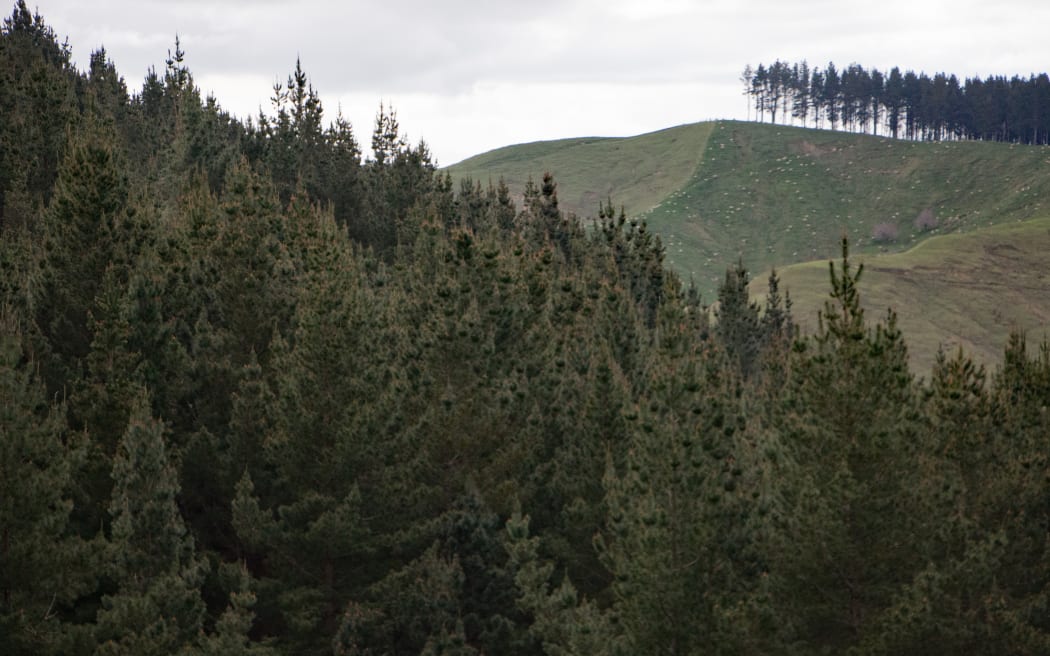
Rivers and lakes could be cleaned up with profits still generated for landowners by converting sheep and beef farms to pine trees, according to a new paper from the Our Land and Water science challenge.
Federated Farmers meat and wool chair Toby Williams told Morning Report pine trees were an important part of the regional economy, as well as on-farm, but planting whole farms with pine trees could have flow-on impacts in regional towns.
"The concerns we've got is the planting of whole sheep and beef farms detracts from those communities. It means you have less schools, you start to struggle with attracting people to rural communities because the number of jobs that were there in the past aren't there anymore."
Williams called for a more integrated approach, with pine trees planted on farmland rather than converting the whole farm.
The push towards pine has been driven by falling profits of sheep and beef and attractive prices for carbon credits generated by pine trees. But Williams believed there was a future for sheep and beef in New Zealand.
"The future is still bright for sheep and beef farming. There are a lot of things happening with wool and hopefully we are in that progression where we bring ourselves out of the trough we have been in.
"Meat prices are a little bit different; they will come back. Lamb is a premium meat and we are going through some global issues that have depressed that."
Williams also said there was a short-sighted view towards carbon, and while some problems could be solved in the short-term, he had concerns over the long-term benefits.
"What we are not doing, is we are not developing a market for using this timber. We need to be looking at pockets of farms where we can put pine trees in, and create an income for farmers and also provide some environmental benefits.
"We've got to make sure that we are keeping rural New Zealand productive, otherwise it's just going to be the final nail in the coffin."















